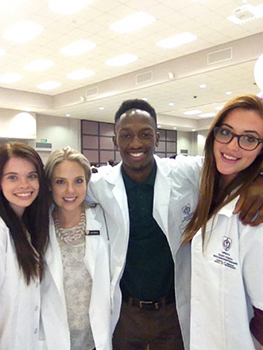Latest News Archive
Please select Category, Year, and then Month to display items
04 April 2024
|
Story Lunga Luthuli
|
Photo SUPPLIED
 Dr Juliet Kamwendo champions gender-inclusive climate action in Africa. Her expertise at the recently held AFR100 workshop highlighted vital steps towards sustainable and equitable development.
Dr Juliet Kamwendo champions gender-inclusive climate action in Africa. Her expertise at the recently held AFR100 workshop highlighted vital steps towards sustainable and equitable development.
Dr Juliet Kamwendo, Lecturer and Programme Director for Gender Studies in the Centre for Gender and Africa Studies at the University of the Free State, is spearheading efforts to integrate gender considerations into Africa's climate restoration agenda. Reflecting on her involvement, Dr Kamwendo stated, "This is particularly crucial, as women make up almost 50% of the population in Africa, and the depletion and degradation of land affect them disproportionately."
She recently served as a gender expert at the AUDA-NEPAD AFR100 workshop in Ouagadougou, Burkina Faso, from 25 to 29 March 2024. This initiative aims to restore forests and degraded land across Africa by 2030, with a focus on gender equality.
The workshop emphasised the integration of gender perspectives into the AFR100 project, acknowledging the disproportionate impact of land degradation on women. Dr Kamwendo's expertise highlighted the need to empower women in climate change interventions, addressing existing gender inequalities exacerbated by environmental degradation.
“Women – who are primarily responsible for household food security and water provision – bear the brunt of environmental degradation, leading to increased workloads, reduced income opportunities, and heightened vulnerability to climate-related disasters. Furthermore, the loss of forest cover and biodiversity further exacerbates the challenges faced by women, particularly in rural areas where they depend heavily on natural resources for their livelihoods,” added Dr Kamwendo.
Her participation highlights academia's crucial role in fostering inclusive and sustainable development, emphasising interdisciplinary collaboration to tackle complex environmental challenges. Through initiatives such as AFR100, stakeholders are working towards a more resilient and gender-responsive future for Africa.
School of Medicine White Coat ceremony embraces first-years into the fold
2016-03-17

From the left are first-year UFS medical students Liandri Van Zyl, Lane Halberg, Wisani Baloyi, and Neve Steenbeek at the annual White Coat ceremony, wearing their white coats for the first time. |
“Life isn’t about yourself. It’s about what you can pour into the lives of others.” The first-year medical students will not soon forget Dr Lynette van der Merwe’s words during their recent White Coat ceremony. Dr Van der Merwe is the Programme Director of the MBChB undergraduate program at the University of the Free State (UFS) School of Medicine.
The annual White Coat ceremony is a tradition at the school to welcome first-year students to the world of medicine. As an official initiation into this new world, students are allowed to put on their white coats for the first time. During the ceremony, representatives from the Medical Students Association contributed to the significance of the event by reading a declaration of intent regarding professional behaviour for all medical students.
Dr Wayne Marais, Head of the UFS Department of Ophthalmology, was the guest speaker, sharing his vivid memories of being the first black student to study Medicine at the UFS in 1987. Prof Marais encouraged students to embrace their failures and successes, and to ultimately stay true to themselves – both personally and professionally.
Second-year medical students were at hand to offer advice and support. In addition to offering encouragement, they also assured the newcomers that there is a life outside of their books as well.
The entire ceremony not only served to welcome the first-years into the fold, but also unite them in a common purpose towards helping others in future.